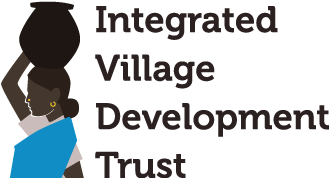The cuts will affect the 250,000,000 who go to bed hungry each night
Well, there we are – the axe has fallen. We knew that sooner or later UK government aid to India would end. But we hadn’t expected it so soon. This is a blow for us personally, of course, but the real cost is to be borne by the poorest. Fortunately none of our current projects are affected; our Community Radio Project in Western Orissa will continue until March 2014, as planned. We are uncertain about proposals which have already been submitted, and whether we are able to make any more applications. Presumably there will eventually be clarity on this, but not yet.
The Department of International Development has long been the object of contempt from both sides of the aid debate. But in spite of the bad press, much of their work has made a very real and positive contribution to improving the lives of many millions across the world, not least in India. An example: the National Rural Health Mission (NRHM) is a programme taking basic healthcare to rural communities, and especially addressing the needs of women and children. DfID made a major contribution to this programme- not just financial help, but formulating the programme and providing organisational expertise. And as a result of this, there have major reductions in Infant Mortality Rates and Maternal Mortality. TB, leprosy, malaria, are all being reduced. So DfID’s contribution to the NRHM is making a real difference at the ground level.
A quick look through the list of projects in India that are receiving DfID support (DfID-funded Projects on http://www.dfid.gov.uk/Where-we-work/Asia-South/India/) will show many more examples where money from British taxpayers is helping to formulate and implement policy which will alleviate poverty and bring better living conditions for over 250 million people who still go to bed hungry every night.
We know that India is an increasingly affluent country, and we believe that the funding should stop in the foreseeable future. But this is surely premature. Over the past twenty years we have seen real improvements in policy and policy implementation in India. Village wells have been dug, schools and roads built, health services provided, mostly by the Indian government. But there is so much more to be done. There are still more than 250 millions living in abject poverty, who fall through the fragile net of service delivery. And that net is immensely fragile.
Our submitted projects would help set up mobile courts and grassroots law services in remote forest areas, bringing legal rights to tens of thousands of poor people, and would provide a model for implementing current policy elsewhere. Or would develop Community Forests in areas of ancient forest which are rapidly disappearing due to the collusion of corrupt forestry officials with illegal loggers. This would secure the future livelihoods of thousands of tribals who depend on the forest and now face the prospect of having to leave the area. It would protect the environmental sustainability of the area, which is beset with soil erosion and degradation. We keep our fingers crossed that the door has not been finally closed on this valuable work.
Of course this should be done by the Indian government, but it isn’t, and it won’t be for the foreseeable future. The model which DfID will now follow in India, that of supporting trade as a way of bringing wealth to all, will leave most of these 250 million people behind, especially in rural areas. I have never been uncritical of DfID, but I think we should be very proud of much of the work that it has funded. And I feel ashamed at the meanness of one of the richest countries in the world denying chances to so many of the poorest.
IVDT will continue with its projects. And with its fundraising, though it will be harder than ever to find the money for our work. We hope that our supporters will share our concern at this news, and continue to give as generously as ever to our projects.
Helena Nightingale, IVDT
16 November, 2012


 sending...
sending...